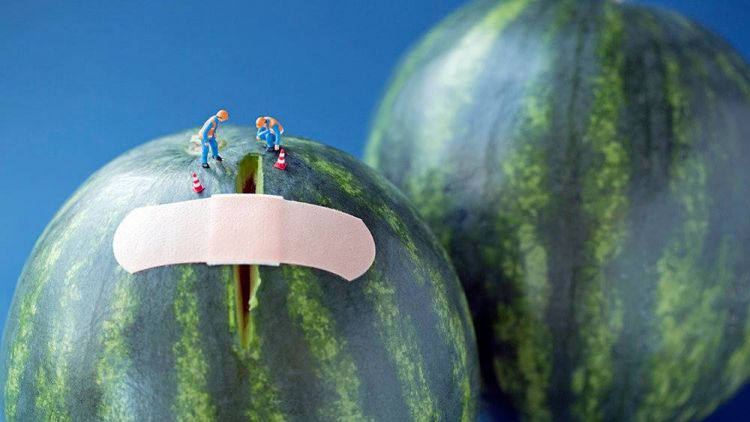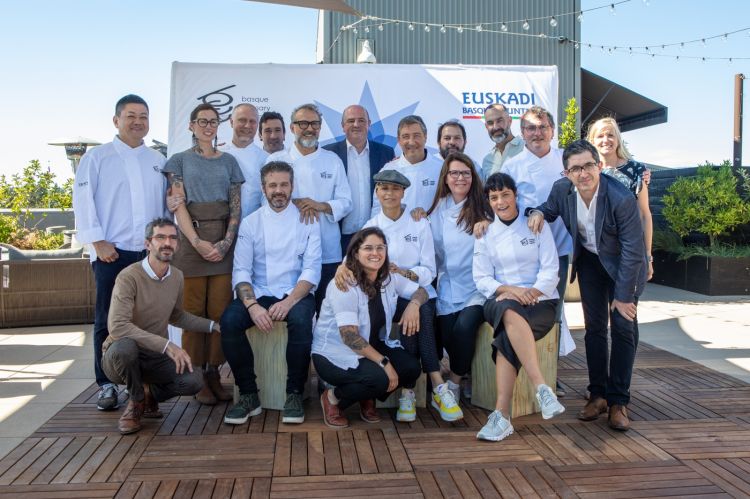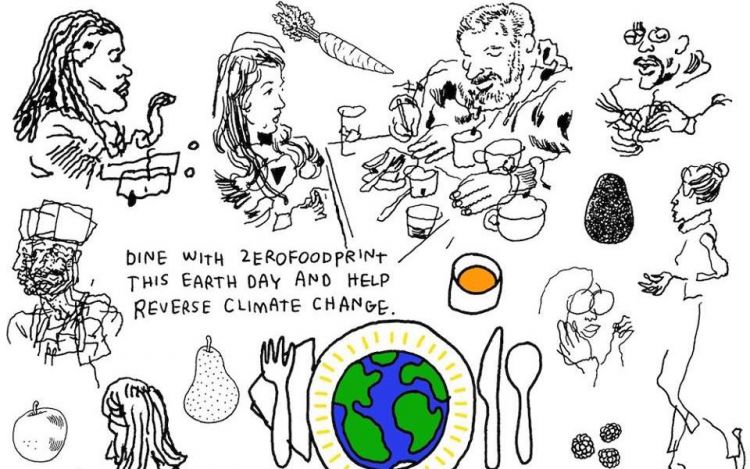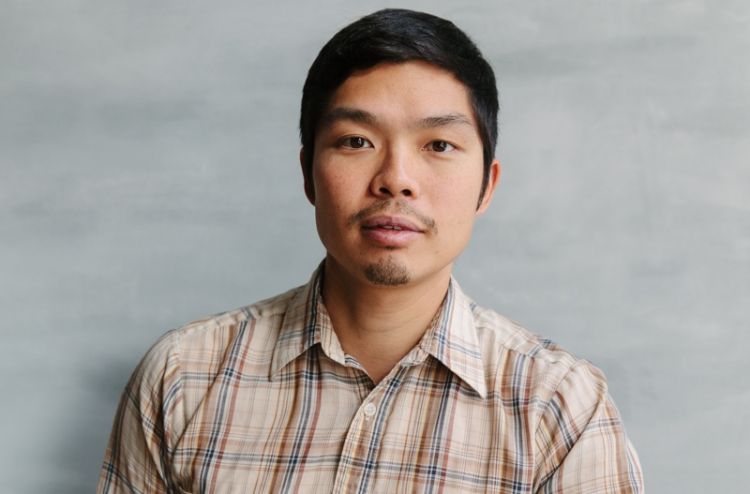Convincing restaurants to reduce or even cancel their direct and indirect carbon emissions, through specific actions and by improving the energetic and operational efficiency and choosing sustainable ingredients. Promoting a renewable food system based on the healthiness of agricultural fields and supporting the so-called "progressive agriculture", that is to say food production that is not just environmentally aware but also ethical, fruitful and of high quality. These are the pillars of ZeroFoodprint and of The Perennial Farming Initiative, which convinced the jury of the Basque Culinary World Prize 2019 to proclaim their creator as the winner of the prestigious award. His name is Anthony Myint. The ceremony took place last month in San Francisco during the Sustainable Thinkingsymposium.

Myint, born to Chinese parents who emigrated to Myanmar, is an American (he was born on May 5th 1978 in Falls Church, Virginia) who works in California, and has been committed for a while in food projects with a strong fair and ecological impact. With a degree in Economics and Asian Studies, the chef – together with his wife, journalist Karen Leibowitz – focused his work on environmental and social activism since his early career with the famous restaurant Mission Street Food in 2008.
A restaurateur, chef, author and food consultant, he has launched brands like Mission Street Food, as well as Mission Chinese Food, Mission Cantina, Mission Burger, Lt. Waffle andCommonwealth Restaurant. Mission Chinese Food, based in San Francisco, in 2010 won the second place in the top ten of the new restaurants in America for Bon Appetit Magazine; two years later, the same magazine nominated Mission Chinese Food (which in the meantime opened a second restaurant in New York) as the ninth most important restaurant in the United States.

Now he’s won the award that goes to chefs from all around the world who have contributed in transforming society through gastronomy. Myint aims to take on one of the most important challenges of global society, starting from the kitchen: climate change. Indeed, in San Francisco he promotes projects like ZeroFoodprint to stress the environmental impact of restaurants and to offer tools and solutions that help all chefs, regardless of where they are, to reduce or eliminate their carbon footprint.
It follows three basic principles:
KNOWLEDGE
"Knowing is half the battle. ZeroFoodprint empowers chefs and restaurants helping them understand the climate impact of various products, equipment and methods"
ACTION
ZeroFoodprint works with restaurants to help them drive down their foodprint by taking actions on operational efficiency, ingredients and carbon offsets"
AWARENESS
"We continually study the links between food and climate change, and freely distribute our findings in order to arm the restaurant industry and diners with the best possible information”
Today, more than 30 influential restaurants all around the world apply the
ZeroFoodprint method. Of course, many are in California (
Atelier Crenn, Benu, In Situ...), but also abroad:
Noma and
Amass in Copenhagen joined the project, while
Mirazur in Mentone and
108, also in the Danish capital, are about to do so. Others participate in single events, like the one that took place on April 20th, this year,
Earth Day, by financing environmental projects in the food system:
Cosme,
Eleven Madison Park,
NoMad among others in the United States;
Effervescence in Tokyo;
Clamato in Paris;
El Celler de Can Roca in Gerona,
Hiša Franko in Slovenia,
Mikla in Istanbul,
The Clove Club in London,
Pujol in Mexico City. On the
ZeroFoodprint website there’s a list of all the "
Restaurants leading the fight against climate change", with a counter indicating the number of gallons of gasoline emissions reversed by ZFP restaurants. Right now, there are over 1 million 600 thousand.
Myint, as mentioned, is also the creator of
The Perennial Farming Initiative, through which he supports models of sustainable agriculture. In 2019, together with the State of California, he launched the
Restore California Programme. The project offers consumers and suppliers the instruments to have transparent information regarding the environmental impact of the restaurants in the list, so that they can make the best decision based on clear information. Each restaurant, in order to enter the list, must have a neutral management in terms of carbon footprint, or they must support local farmers in extracting it from the environment.

The Basque Culinary World Prize is organised and promoted by the Basque Culinary Center, a leading academic institution in world gastronomy, and by the Basque government, as part of the Euskadi-Basque Country Strategy. The winner was chosen among ten finalists by an international jury made of the most acclaimed chefs in the world and by international experts in similar fields; the jury, directed by Joan Roca (Celler de Can Roca), included Andoni Luis Aduriz (Mugaritz), Eneko Axta (Azurmendi), Massimo Bottura (Osteria Francescana), Manu Buffara (Manu), Katina and Kyle Connaughton (SingleThread), Dominique Crenn (Atelier Crenn), Linda Deakin (Ideo), Trine Hahnemann (Hahnemanns Køkken), Yoshihiro Narisawa (Narisawa), Emiliana Puyana (La Cocina), Enrique Olvera (Pujol), Tucker Taylor (Jackson Family Wines) and Jock Zonfrillo (Orana) who won the previous edition.
Anthony Myint will receive 100K euros to spend on a cause or an institution of his choice that shows the wider social role of gastronomy. In 2018 the award went to Zonfrillo who dedicated 18 years to the rediscovery and safeguard of the ancient food culture of Australian indigenous people, mostly not considered in the national gastronomic identity (see Jock Zonfrillo, 100mila buoni motivi per battersi per gli aborigeni).

The finalist chefs who competed this year, on top of Myint, included: Selassie Atadika (Ghana); Mario Castrellón (Panama), Siew-Chinn Chin (Malaysia-USA); Giovanni Cuocci (Italy); Xanty Elías (Spain); Virgilio Martínez (Peru); Cristina Martínez (Mexico-USA); Douglas McMaster (United Kingdom); Lars Williams (USA-Denmark).These people are part of a pioneering movement in whose growth they have contributed themselves, which was initiated by chefs like Ferran Adrià, José Andrés, Dan Barber, Massimo Bottura, Claus Mayer, Jamie Oliver and Alice Waters; these people have stimulated the gastronomic industry in changing the basic rules, and taking on the responsibility, now decades ago, of improving society.
When they announced he won the Basque Culinary World Prize, Anthony Myint said: «I started cooking because I believe that restaurants can make the world a better place, and becoming a father, seven years ago, truly inspired me to explore what chefs can do about climate change. Since then, science has confirmed that healthy soil and good agriculture can solve the issue of global warming. I’m thrilled that the Basque Culinary World Prize has paid attention to the positive solutions in the world of food, and I’m incredibly honoured to represent what I hope is the beginning of a much wider movement. I believe that through the entire food industry we all (cooks, guests, farmers as well as politicians) can join forces to create a renewable system. Indeed restaurants have the opportunity of “restoring” nature, of re-storing all the carbon that was once in the soil».

Anthony Myint (photo Alanna Hale)
Joan Roca, president of the jury, said: «Instead of contributing to the issue of climate change, gastronomy can bring solutions: on top of increasing awareness, Anthony Myint summons restaurants to action, offering practical tools to our industry to reduce the environmental impact and take an active role in the common goals that are necessary to solve this universal issue, inviting us to be part of the change».
Based on the idea that it is essential to involve the culinary sector and that a concrete impact requires chefs from all around the world to join forces in a scalable way, jurors promised to sign up their restaurants as consultants, supporting the ZeroFoodprint project, starting from Mugaritz, Celler de Can Roca, Azurmendi, Atelier Crenn, Pujol, Cosme andNarisawa, just to name a few.
Translated into English by Slawka G. Scarso